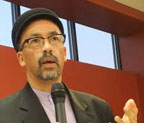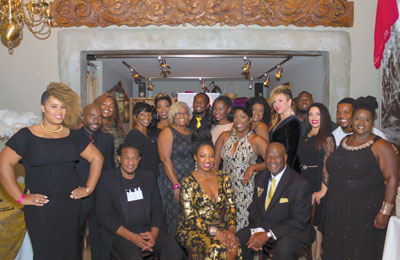
Breaking white silence on racism
By Bill Fletcher, Jr. NNPA Columnists
On September 15, AFL-CIO President Richard Trumka did something quite fascinating. He spoke to a labor audience in St. Louis about race and racism. What was particularly noteworthy is that he was not speaking to a largely Black or Latino audience. [To hear and see the speech, go to: https://www.youtube.com/watch?v=ny8loBhqmhc.]
I have known Richard Trumka for almost 25 years. He has been outspoken against race and racism, but what is significant here is that all too often Whites speak about race and racism to the victims of this oppression, specifically, to African Americans, Latinos, Asians and Native Americans. No matter how powerful a speech it may be, it always begs a simple question: Why are you telling us what we already know?
Trumka decided to flip the script. Seizing on the anger that has arisen in connection with the murder of Michael Brown in Ferguson, Mo., Trumka went to the Missouri AFL-CIO Convention to, among other things, speak about race and class. His audience was not the tried and true. Although it was racially mixed, Trumka was especially targeting his remarks towards White trade unionists, many of who have contradictory attitudes toward race and racism.
Trumka’s remarks have set off a whirlwind of excitement on the Internet, and so they should. Yet the problem that we confront is one that the union movement confronted in 2008 when the same Richard Trumka challenged White workers to put aside their racial biases and vote for Barack Obama. The problem is that his speeches—in both cases—were courageous and progressive. Nevertheless, the 2008 speech was not followed up by a broader dialogue in the trade union movement about race and it is far from clear whether such a discussion will happen this go-round subsequent to his September 15th speech.
Organized labor desperately needs a discussion about race. Such a discussion is not only about African Americans and Whites, but concerns the entire racial spectrum of the USA. We are in need of a discussion that helps Whites in particular, to come to understand how and why “race” as a method of social control was introduced into North America. Such a dialogue is not a ‘touchy/feely’ exchange along the lines of too many well-intentioned but misguided multi-cultural programs. Rather, the dialogue needs to rest on history such that workers generally grasp the means through which they have been played against one another and who has actually gained.
The sort of dialogue we need must also tackle questions like immigration, and specifically, why the dramatically different attitudes in White America towards immigration to the U.S. from Ireland and Russia, compared with their attitudes towards migrants from Mexico, the Dominican Republic, the Philippines, and Nigeria.
Trumka deserves praise for his remarks. One does not have to agree with every word, and it is not the speech that I would have delivered. But it was a speech delivered by a White union leader seeking to move White union members to rethink the racial instinct that has been implanted within them, and within generations preceding them. That said, we need to go much further and move a broader discussion and then, of course, together take some very concrete steps to challenge racist oppression.
The silence has been broken by the solo. Now we must have the chorus.





Be the first to comment